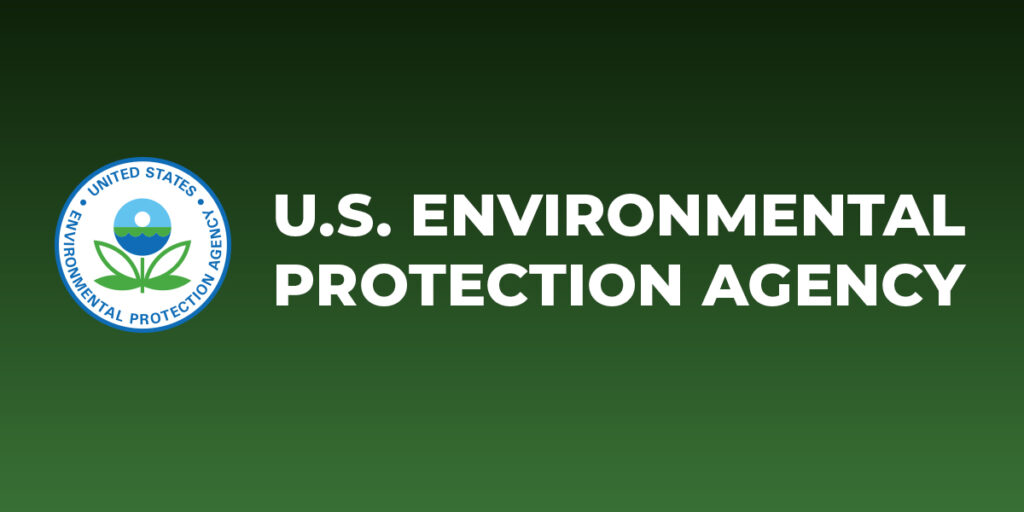 (AGENPARL) - Roma, 13 Settembre 2023
(AGENPARL) - Roma, 13 Settembre 2023(AGENPARL) – mer 13 settembre 2023 Issued: Sep 13, 2023 (4:17pm EDT)
If you wish to unsubscribe please do so
here: http://url6130.epa.mediaroom.com/ls/click?upn=-2BroytcZInNRyuFbAvAoN5aMEQDHIx2RtQl0jT-2FwLgZHafJKm-2F7NYrsKNAZH88rhd98aG2o5sSGIX8iVgGgXwOczi8WNFU0a7GLvUAvQ8R0QCtkuTI4WABymYAm345NQtlsbq_mLoYh0p4AWg4foFr5HgrZ1QioQ33bLwdnQ-2BsYGKFX9mApcfdQmv0-2Bvkdf9kq-2BlYjCOWuFSg-2BbC-2BrhNJI3wFh6RsashdrDMrBZ65W3cQjygTnvZZ7c7FkhVC88Hivdh9lXY-2F7K063Axc2zhSNac5GwXEbIQgbWtwIrYb69A3MBI3ZaN3Vq4GwPNN1aovXQyLINia2jlRid82Lb-2Flts05lihR3THnndaXopTHHhjlubnbxfHRcGeEbxW5F4GjV62LKrdnC3EKhKV-2FJwtHBQCM6gw-3D-3D
EPA Resolves Longstanding Litigation to Protect Endangered Species, Ensure
Pesticides That Feed and Fuel America Remain Available
WASHINGTON [September 13, 2023] – This week, the U.S. Department of Justice,
on behalf of the U.S. Environmental Protection Agency (EPA) resolved
longstanding litigation covering over 1,000 pesticide products, allowing EPA
to fulfill its obligations to protect endangered species while conducting
reviews and approvals of pesticides in a safe and protective manner.
In 2011, the Center for Biological Diversity and Pesticide Action Network
(Plaintiffs) filed a complaint in Federal Court in California against EPA
alleging that it was violating the Endangered Species Act (ESA) when it
registered or reevaluated the registration of 382 pesticide active
ingredients, which was ultimately reduced to 35 active ingredients covering
over 1,000 pesticide products containing one or more of these active
ingredients. This became known as the “megasuit” because of the number of
pesticides it covered. The settlement entered by the Court this week resolves
all outstanding claims.
“This agreement is a win-win-win to protect endangered species, ensure the
availability of pesticides needed to grow food across America, and save
considerable time and taxpayer expenses required to further litigate this
case,” said Assistant Administrator for EPA’s Office of Chemical Safety
and Pollution Prevention Michal Freedhoff. “This settlement allows EPA
adequate time to fulfill its obligations under the Endangered Species Act and
adopt key elements from the Agency’s 2022 ESA Workplan, which a wide range
of stakeholders support.”
In 2022, EPA issued its ESA Workplan, Balancing Wildlife Protection and
Responsible Pesticide Use: How EPA’s Pesticide Program Will Meet its
Endangered Species Act Obligations, which describes how EPA will address the
challenge of protecting ESA-listed species from pesticides. The ESA Workplan
was developed with public listening sessions and public comment. This
settlement is consistent with EPA’s ongoing efforts to develop a
multichemical, multispecies approach to meeting its ESA obligations under the
workplan. EPA’s traditional chemical-by-chemical, species-by-species
approach to meeting these obligations has been slow and costly, with ESA work
on each pesticide typically taking many years to complete. As a result, EPA
has completed its ESA obligations for less than 5% of its actions, creating
legal vulnerabilities, the potential for adverse impacts to listed species,
and uncertainty for farmers and other pesticide users that use many
pesticides. Resolving the remaining claims in this lawsuit and establishing a
path forward under the settlement is a significant step to overcoming these
challenges.
This agreement and the prior partial settlement include obligations for EPA,
many of which are also described in the ESA Workplan. Those actions include:
· Development of mitigation measures for listed species that are particularly
vulnerable to exposures from pesticides and determine how to apply these
mitigations to future pesticide actions, as well as whether this Vulnerable
Species Pilot should be expanded to more species. EPA met its first deadline
(June 30, 2023) for this action by conducting public outreach on the
mitigation measures identified for the first set of species.
· Development and implementation of an Herbicide Strategy (draft released
for public comment), a Rodenticide Strategy, Insecticide Strategy, and
Fungicide strategy (the latter three are still under development) which will
identify mitigation measures for entire classes of pesticides to address their
potential impacts to hundreds of ESA-listed species
· Completion of the ESA work for eight organophosphates and four
rodenticides;
· Hosting of a workshop for stakeholders to explore how to offset pesticide
impacts on ESA-listed species in situations where eliminating or modifying
pesticide use may not be feasible, and how EPA could incorporate those offsets
into its process for registering or reregistering pesticides. Offsets could
include restoring wetland habitat or funding breeding programs for affected
species.
To unsubscribe or change your settings click here:
http://url6130.epa.mediaroom.com/ls/click?upn=-2BroytcZInNRyuFbAvAoN5aMEQDHIx2RtQl0jT-2FwLgZFdW2WYdzQmaasDKJ3YChU3bfQ0kTmNkW62Tg3hfZNblhI80lYYhT7a-2FIPnCuITzO-2FI-2FSCblSUJXw-2FrcwnhlYYVmPECv-2Bsdk9T7KreEVAWCRA-3D-3Dhtcn_mLoYh0p4AWg4foFr5HgrZ1QioQ33bLwdnQ-2BsYGKFX9mApcfdQmv0-2Bvkdf9kq-2BlYjCOWuFSg-2BbC-2BrhNJI3wFh6RsashdrDMrBZ65W3cQjygSci4IEfdEkBDTwl5ezisugY5GruDGkOA3xVJLHfXVbqnQv3YXEjYNiQovMXFKg3ShJs-2FQXwq5k6e6uPbJrnVwCJ6dkkWXZxlF3LeJg4F6CsH9nBzx5SvI39upJS0fm0oqP-2FCg9qqSgjU9OZqd2Bgiz-2BFIJQlMLex8rr9Dq9MwltA-3D-3D

